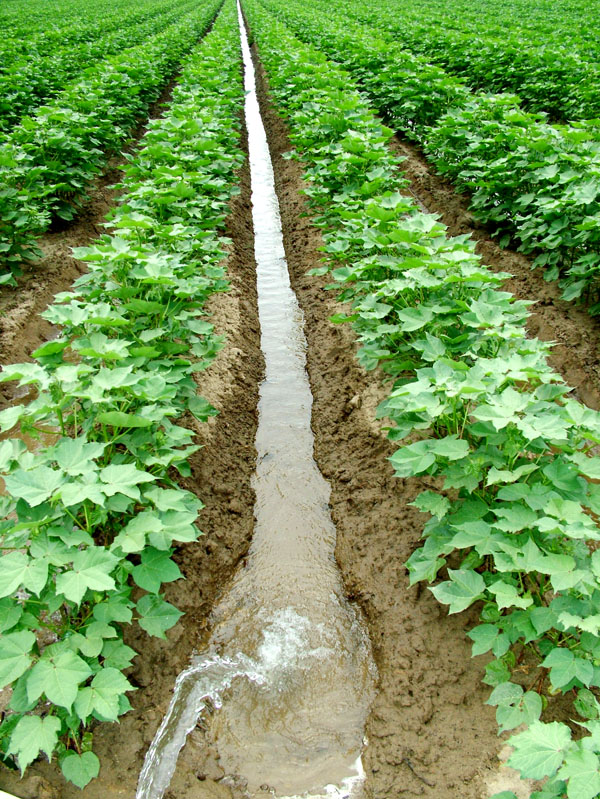
Producers in Mississippi’s Delta region have reached the first goal in the initial phase of a voluntary metering program for irrigation wells.
As the June 30 deadline passed, the Mississippi Department of Environmental Quality announced that the 5 percent goal supported by the Delta Sustainable Water Resource Task Force had been officially met.
“We’re excited that producers in the Delta worked together to reached the initial voluntary metering goal,” says task force leader Kay Whittington. “This is a significant accomplishment, and everyone who installed a meter is to be congratulated.”
That momentum must be continued, Whittington says, in order to reach the other goals of the voluntary metering program.
Stay current on what’s happening in Mid-South agriculture: Subscribe to Delta Farm Press Daily.
The next milestone is for everybody who installed meters by June 30 to report water use for 2014 to MDEQ by February 1, 2015.
“Later this year, we will provide information and training on how to meet that reporting requirement,” Whittington says. “It is also important to work toward an additional 5 percent in each county by the end of 2015. We encourage producers to take advantage of NRCS financial assistance available for purchasing meters.
“MDEQ is committed to working with Farm Bureau and the other Task Force members to meet these additional goals in the voluntary metering program,” Whittington says, “and to do whatever is needed to insure that Delta producers have sustainable water supplies for the future.”
Randy Knight, president of the Mississippi Farm Bureau Federation, which has backed the voluntary effort, said, “We cannot express how proud we are of the producers in the Delta area for stepping up to meet the goals of the voluntary metering program.
“We have now met our 5 percent goal by the initial deadline, and we will continue to pursue reaching the remaining 5 percent mark by December 2015.
MORE ON IRRIGATION:
Moisture sensors helping Delta specialists reduce irrigation pumping
SLIDE PRESENTATION: Streamflow depletions due to groundwater withdrawals
“Farm Bureau policy supported a voluntary approach to collecting this information about our water use,” Knight says. “We supported the proposal for a voluntary program offered by the Delta Sustainable Water Resource Task Force, and the farm leaders in the Delta followed through on that agreement.
“Over the last year and a half, a large amount of time and resources were put forth by our volunteer leaders and staff to insure that we met these numbers. Many people didn’t think this goal could be reached voluntarily — but it was indeed met. This proves that, working together, the Delta can unite toward a common effort.
“Farm Bureau and the other organizations on the task force will continue to focus our attention on reaching the other half of our metering goal and promoting water conservation measures and programs at every opportunity,” Knight says.
In a letter earlier this spring from the president and chairman of the council’s Soil and Water Resources Committee, it was noted that the voluntary metering program offered by MDEQ “is a reflection of the cooperative spirit which the Delta region enjoys with the state agency charged with the responsibility to protect the ground water and surface water of the state.”
In addition to the Delta Council and the Mississippi Farm Bureau Federation, the task force includes the U.S. Corps of Engineers, Delta F.A.R.M., Mississippi Soil and Water Conservation Commission, USDA’s Natural Resources Conservation Service, and the Yazoo-Mississippi Delta Joint Water Management District.”
The MDEQ-led task force is promoting research and on-farm conservation measures, analysis of aquifer recharge, and the potential introduction of additional surface water supplies to the Delta.
About the Author(s)
You May Also Like




